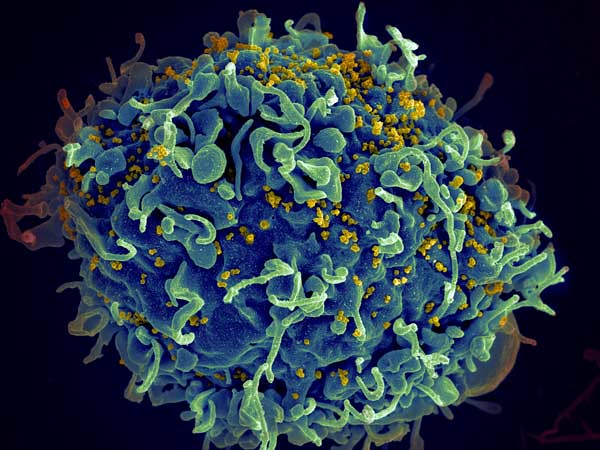The federal government has sued Gilead Sciences, contending in a lawsuit that the company infringed on U.S. Health and Human Services (HHS) patents related to pre-exposure prophylaxis (PrEP) for HIV prevention.
At deadline Gilead had yet to comment on the lawsuit, which was filed yesterday—two months after the company submitted petitions to the U.S. Patent and Trademark Office (USPTO) requesting an inter partes review of claims behind HHS’ PrEP patents and post-exposure prophylaxis (PEP), to determine whether they are valid.
USPTO has granted the agency four patents based on a pair of PrEP regimens developed by researchers at the U.S. Centers for Disease Control and Prevention (CDC) more than a decade ago, and shown to effectively prevent HIV infection.
HHS alleges that its patents have been infringed by Gilead through two drugs indicated for treating HIV-1 infection as well as PrEP: Truvada® (emtricitabine200 mg/tenofovir alafenamide 300 mg tablets), and Descovy® (emtricitabine200 mg/tenofovir alafenamide 25 mg tablets).
As a result, the suit alleges, Gilead wrongly profited from research funded by “hundreds of millions” of taxpayer dollars and reaped billions from PrEP through the sale of Truvada and Descovy.
Both are “blockbuster” drugs whose annual sales exceed $1 billion. During the first nine months of this year, Truvada generated $2.045 billion in product sales, down about 6% from $2.174 billion in the year-ago period, while Descovy made $1.063 billion, down 9% from $1.170 billion in January–September 2018.
For all of 2018, Truvada racked up $2.997 billion in product sales, a 4.4% dip from $3.134 billion a year earlier, while Descovy reaped $1.581 billion, up nearly 30% from $1.218 billion in 2017.
In its complaint, filed in U.S. District Court for the District of Columbia, HHS asserted that Gilead repeatedly refused to obtain licenses for the use of the HHS patents, and instead willfully and deliberatively induced infringement of the HHS patents. The agency contrasted Gilead’s actions with that of two unidentified overseas manufacturers of generic equivalents of Truvada, which HHS said have agreed to licenses with HHS.
“HHS recognizes Gilead’s role in selling Truvada and Descovy to patients for the prevention of HIV. Communities have put these drugs to use in saving lives and reducing the spread of HIV,” HHS Secretary Alex M. Azar II said in a statement. “However, Gilead must respect the U.S. patent system, the groundbreaking work by CDC researchers, and the substantial taxpayer contributions to the development of these drugs. The complaint filed today seeks to ensure that they do.”
Gilead asserted in an August 21 statement that the patents for PrEP and PEP were not valid, saying that published materials showed others had conceived of using an antiretroviral therapy, including Truvada, for PrEP and PEP: “Guidelines published in 2004 recommended administering combination antiretrovirals—including Truvada—to certain categories of “high risk” individuals before an HIV exposure, while [CDC’s] own 2005 guidelines recommended Truvada for prophylaxis immediately after exposure.
“The ongoing dialogue about these patents is a distraction from the important work being done by Gilead and its many community partners to reduce barriers to PrEP,” Gilead added.
Those barriers, according to the company, include limited access to affordable healthcare, low awareness of PrEP, stigma, discrimination, and insurance policies that force patients to share a significant amount of the cost of treatment.
Gilead insisted it is working with advocates, providers, and others to address Truvada costs: “Today, a person with Medicare typically pays between $0 and $5 per month for Truvada for PrEP®; a person with Medicaid typically pays between $4 and $9 per month; and a person with insurance through an employer or private party typically pays between $0 and $35 per month.”
Truvada was first approved by the FDA in 2004 to treat HIV-1 infection in combination with other antiretroviral agents for the treatment of HIV-1 infection in adults and pediatric patients weighing at least 17 kg (37 lb). Eight years later, the drug won the agency’s nod in combination with safer sex practices for HIV-1 PrEP to reduce the risk of sexually acquired HIV-1 in at-risk adults and adolescents weighing at least 35 kg (77 lb).
Last month, Descovy won FDA authorization for PrEP in at-risk adults and adolescents weighing at least 35 kg (77 lb). Individuals must test negative for HIV-1 immediately before they can receive Descovy for PrEP. The drug was first authorized in 2015 for HIV-1 infection in combination with other antiretroviral agents in adults and pediatric patients weighing at least 35 kg; and in combination with other antiretroviral agents other than protease inhibitors that require a CYP3A inhibitor in children weighing at least 25 kg (55 lb) and less than 35 kg (77 lb).







